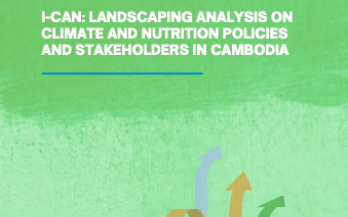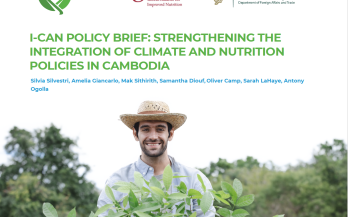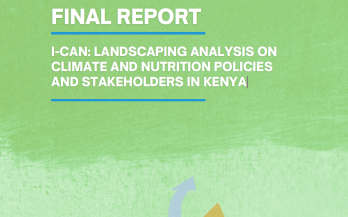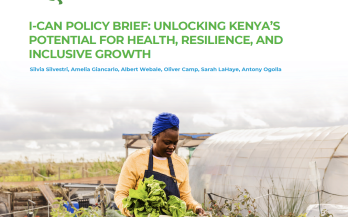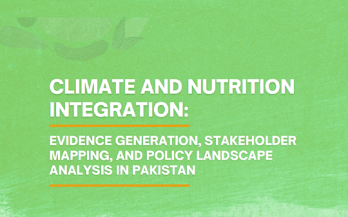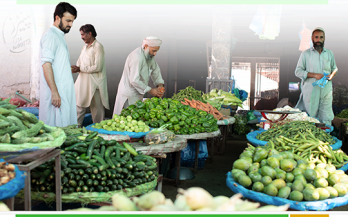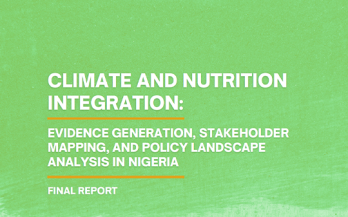- 13/02/2026
To strengthen evidence and practice about local fresh food markets and food systems governance, in 2025, ICLEI CityFood, the Global Alliance for Improved Nutrition (GAIN), and World Farmers Markets Coalition published two editions of a handbook about markets and resilient cities. The second edition comprises 31 city-market case studies and is structured around the CityFood Market Action Framework. Between May and December 2025, following the launch of the first edition, ICLEI CityFood and GAIN co-convened eight online sessions of a Community of Interest focused on markets and cities. The sessions were structured around four thematic areas: an introduction to how cities shape food markets; gender and social intersectionality; managing food waste; and access to nutrition. Across all eight sessions, a total of 327 participants from 27 cities and 56 organisations took part. This paper shares a summary of those prior sessions and signposts upcoming sessions
- 13/02/2026
Tempeh is a popular traditional plant-based protein that plays a vital role in Indonesian diets. Indonesia’s reliance on imported soybeans (2.6 million tons/year) for tempeh production, however, creates market instability and food vulnerabilities, particularly regarding cost and supply fluctuations. This paper analyses the technical, economic, and market feasibility of alternative legumes—specifically, jack beans, mung beans, and peanuts—as sustainable substitutes for soybeans in tempeh production. The aim is to identify the most viable option for immediate scale-up to support local food systems and improve nutritional outcomes.
- 06/02/2026
Fish offer a potentially sustainable solution to food security and nutrition challenges in Indonesia. Despite abundant aquatic resources, per capita fish consumption remains lower than in neighbouring countries. Factors such as overfishing, pollution, and unsustainable aquaculture practices limit growth, while climate change poses additional threats to fish stocks.
- 06/02/2026
This report summarizes key findings from the policy landscaping and stakeholder mapping analyses in Cambodia and provides recommendations to strengthen policy integration under the Initiative on Climate Action and Nutrition (I-CAN).
- 06/02/2026
Cambodia faces urgent challenges at the intersection of climate change and nutrition: rising climate risks threaten food systems and nutrition outcomes, particularly for vulnerable rural communities. This policy brief presents findings from a 2025 light-touch assessment involving 32 policies and key stakeholder interviews.
- 06/02/2026
This report summarizes the key findings from the Kenya policy landscaping analysis and stakeholder mapping analysis and provides recommendations for better policy integration in Kenya in support of the Initiative on Climate Action and Nutrition (I-CAN).
- 06/02/2026
Climate change and malnutrition are deeply intertwined challenges in Kenya, where climate related
shocks continue to threaten food systems, health services, and vulnerable populations. This policy brief summarizes f indings f rom a rapid assessment of 27 national policies and key stakeholder interviews, conducted to support the I-CAN initiative. The analysis reveals uneven climate–nutrition integration across sectors, with strong implementation f rameworks in some policies but persistent gaps in coordination, data systems, and f inancing. Overreliance on donor funding, limited engagement of diverse stakeholders, and underutilized governance structures further hinder progress. At the same time, there are clear opportunities to strengthen policy
alignment, institutional reform, cross-sector collaboration, and stakeholder inclusion to build a more resilient and nutrition-secure Kenya.
- 02/02/2026
Pakistan faces intertwined climate and malnutrition challenges, with floods, droughts, and rising temperatures threatening food security amid high child stunting (40.2%) and wasting (17.7%). Climate change is worsening nutrition outcomes, especially for women, children, and smallholder farmers, while climate and nutrition policies remain fragmented. GAIN’s I-CAN initiative aims to assess and strengthen the integration of climate and nutrition across Pakistan’s policies and strategies.
- 02/02/2026
Pakistan faces a dual crisis of climate change and malnutrition, with floods, droughts, and other climate shocks driving some of the world’s highest rates of child stunting (over 40%) and wasting (around 18%). Most climate and nutrition policies operate in silos, offering limited integrated action, while regions like Sindh and Balochistan face the greatest vulnerabilities. Integrating nutrition into climate adaptation—such as promoting climate-resilient, nutrient-rich crops—can deliver “win-win” outcomes, but urgent, coordinated action from policymakers, donors, and civil society is needed to protect the most at-risk populations.
- 02/02/2026
Nigeria faces a dual crisis of rising food insecurity and worsening climate impacts. By 2025, an estimated 33.1 million Nigerians are expected to be food insecure, with around 35% of children under five stunted, especially in the north. Ranked 110th of 127 countries on the 2024 Global Hunger Index, Nigeria’s challenges are driven by economic, environmental, and nutritional factors. GAIN engaged Sawubon Advisory Services to generate insights on the climate–nutrition nexus, supporting the integration of climate and nutrition into policies and programs. Climate change—rising temperatures, erratic rainfall, and extreme weather—has already reduced agricultural productivity, and by 2080, yields of millet and sorghum in northern Nigeria could fall 13–20%. With over 80% of agriculture rain-dependent, these trends threaten sustainable food production and nutrition outcomes.



